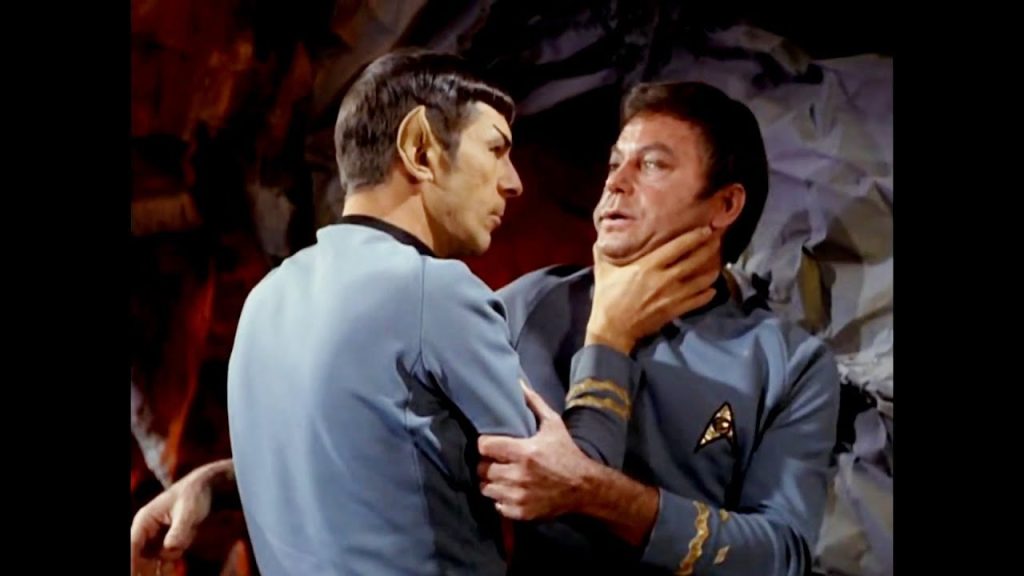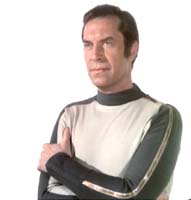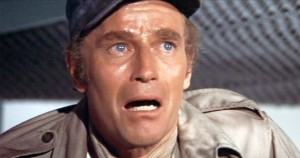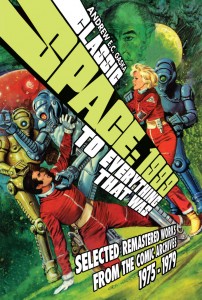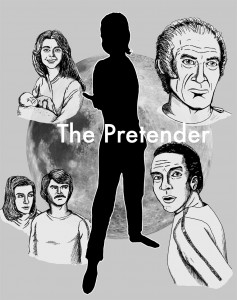
Pencils by Steven H. Wilson, Inks by Ethan H. Wilson
Okay, I’m a little self-conscious about this. Forty years ago this Fall, ten-year-old me fell in love with a new TV show called Space:1999. I started writing when I was 11, and, after my first “original” short story was complete, I began writing Space: 1999 fan fic. It was my passion and it launched me on the path to an addiction–I mean a career–albeit only a part-time career, in writing. So, near the end of the show’s 40th anniversary year, and, quite frankly, exhausted from almost two decades of building my own universes, I decided to return to my roots and honor the show by writing a “lost episode.” This is prose, but it’s built on the four-act structure that dramatic television used in the 1970s. I hope it feels like a novelization of an episode you never saw.
And, as with all fan fic, the characters and world are not mine, aside from the guest star characters I created. I’m borrowing them without permission, not for profit of any kind, just to celebrate something I loved with other people who may have loved it too. I hope you’ll pardon an otherwise professional writer taking a detour. And I’d like to further point out that a lot of very talented people like John Kenneth Muir and Andrew E.C. Gaska have actually been licensed to write new Space: 1999 adventures, and I don’t mean to detract from their work in any way.
Oh, and I’d like to thank my beta-readers: Sharon Van Blarcom, Russell Wooldridge, Susanna Reilly and Cheri Rosen, for encouragement and insight.
The Pretender
Computers can go mad.
An ignorant man would say a computer was mad when it simply did what he asked it to do, but not what he expected it to do. The more sophisticated idiot knew this was folly, but assumed that the computer would always do exactly what it was told to do. David Kano knew better. He knew that, just like every other intelligent creature, an artificial intelligence could be touched by madness.
David had been given his first computer at the age of 13 and had fallen in love. But when the burgeoning personal computer industry had died a-borning, consumed by a devastating world war, David had taken up working on the massive, shared systems owned only by governments, universities and industrial giants.
Moonbase Alpha’s computer had been his employer’s masterpiece, and he had been her lead developer. She was the most sophisticated brain ever built, superior, in David’s eyes, to a human brain. When she was installed, David had come with her. For five years they’d been intimates, partners, practically a human/machine married couple. He knew her every habit and idiosyncrasy.
Today, he feared for her sanity. Continue reading →
